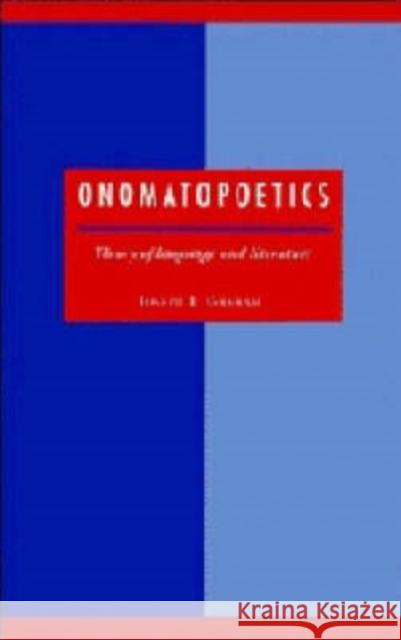Onomatopoetics: Theory of Language and Literature » książka
Onomatopoetics: Theory of Language and Literature
ISBN-13: 9780521400787 / Angielski / Twarda / 1992 / 330 str.
Onomatopoetics: Theory of Language and Literature
ISBN-13: 9780521400787 / Angielski / Twarda / 1992 / 330 str.
(netto: 428,01 VAT: 5%)
Najniższa cena z 30 dni: 423,14 zł
ok. 16-18 dni roboczych.
Darmowa dostawa!
The relationship of words to the things they represent and to the mind that forms them has long been the subject of linguistic enquiry. Joseph Graham's challenging book takes this debate into the field of literary theory, making a searching enquiry into the nature of literary representation. It reviews the arguments of Plato's Cratylus on how words signify things, and of Chomsky's theory of the innate "natural" status of language (contrasted with Saussure's notion of its essential arbitrariness). In the process, Graham explores the issues of meaning and intentionality in representation, and questions of how the mind represents the world. Graham's use of linguistic theories and models leads him to a new response to Wimsatt's notion of the verbal icon, Stanley Fish's concept of literature as self-consuming artifact, and de Man's idea of its function as an allegory of reading. In showing them in fact to be complementary, he transcends the current controversies among literary theorists, arguing that the solution lies not in epistemology or philosophy, but in psychology and the study of how literature teaches and why humans learn best by example.











